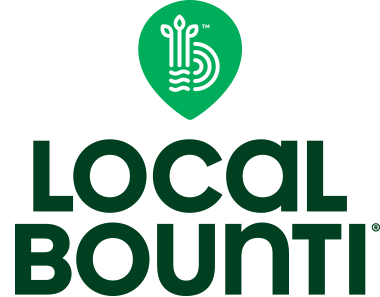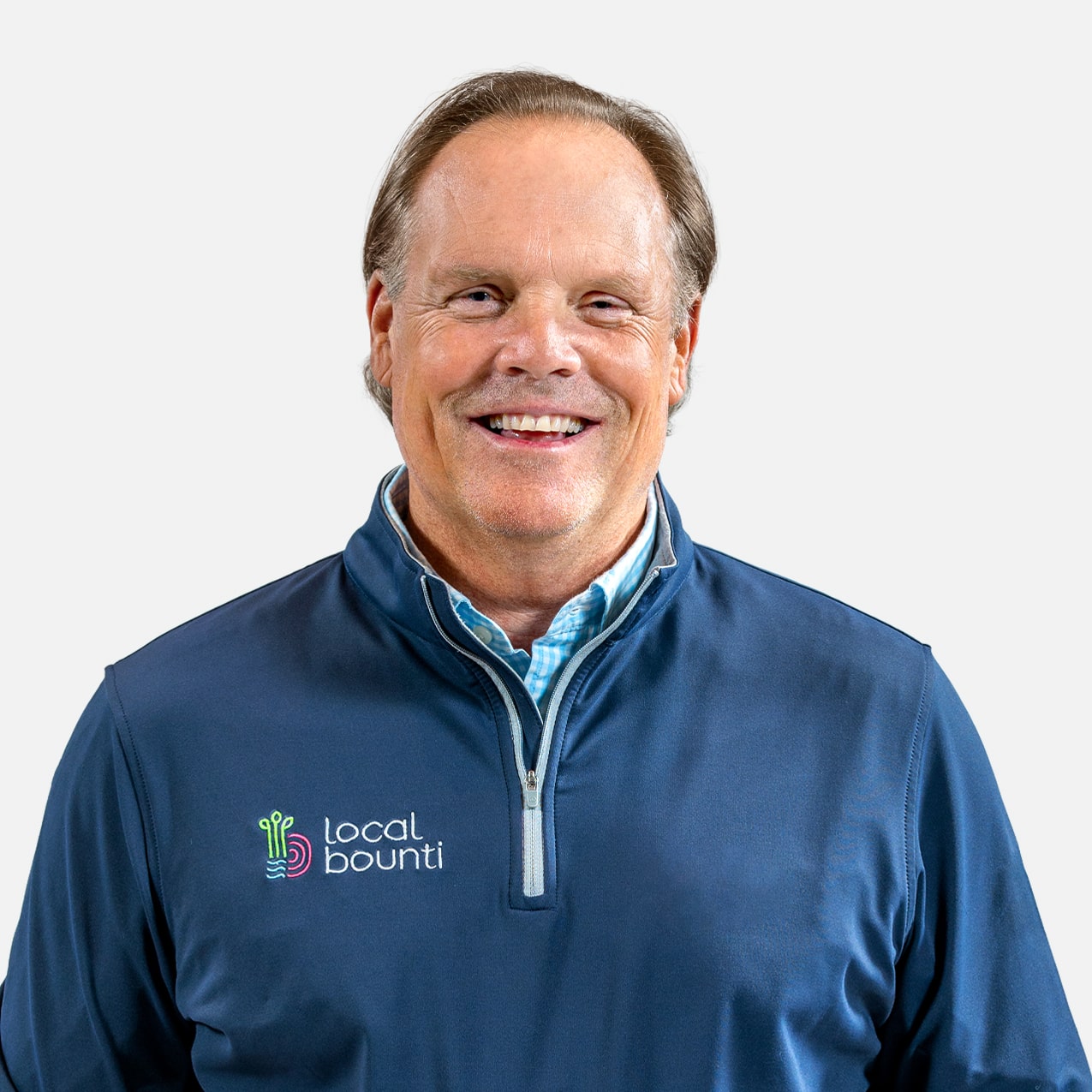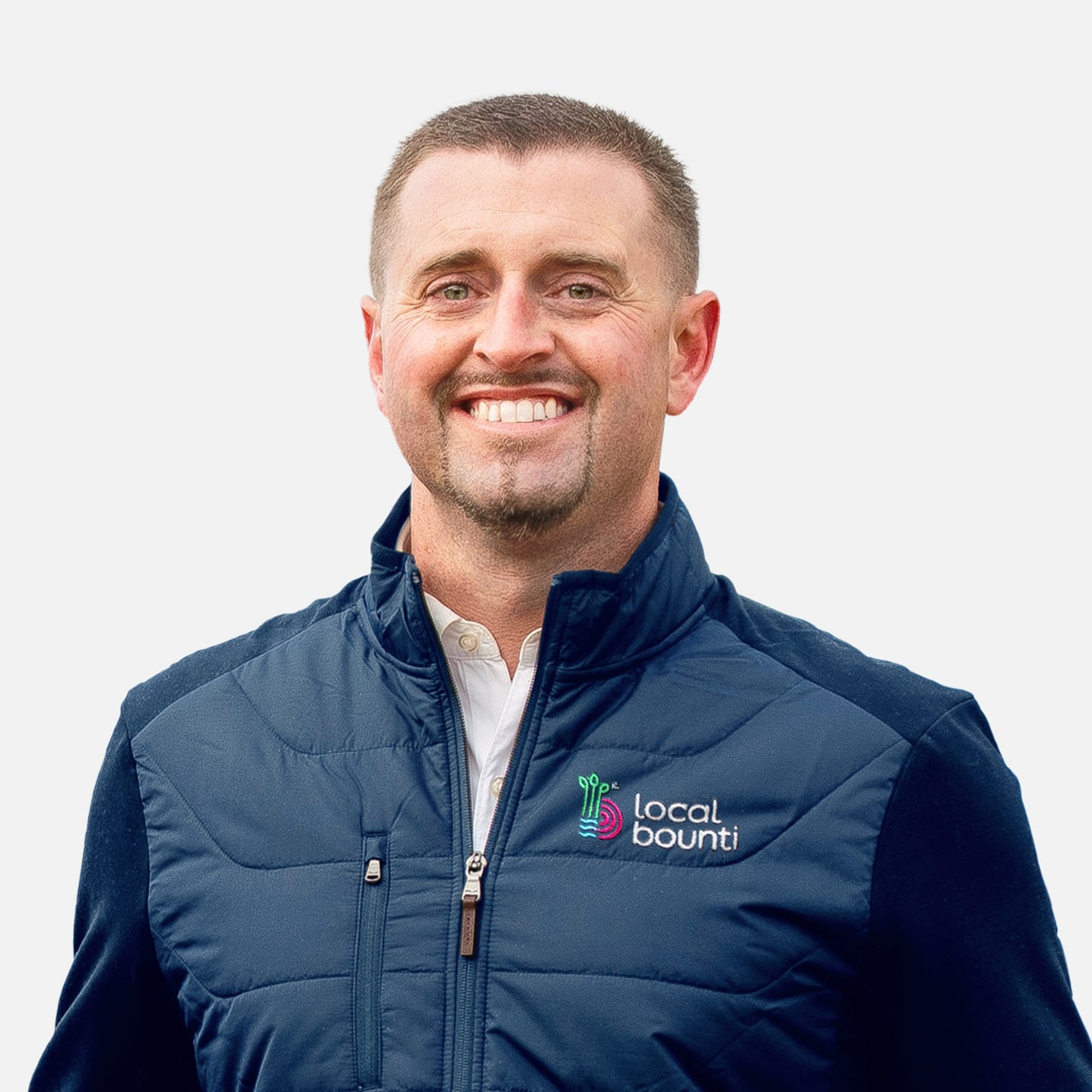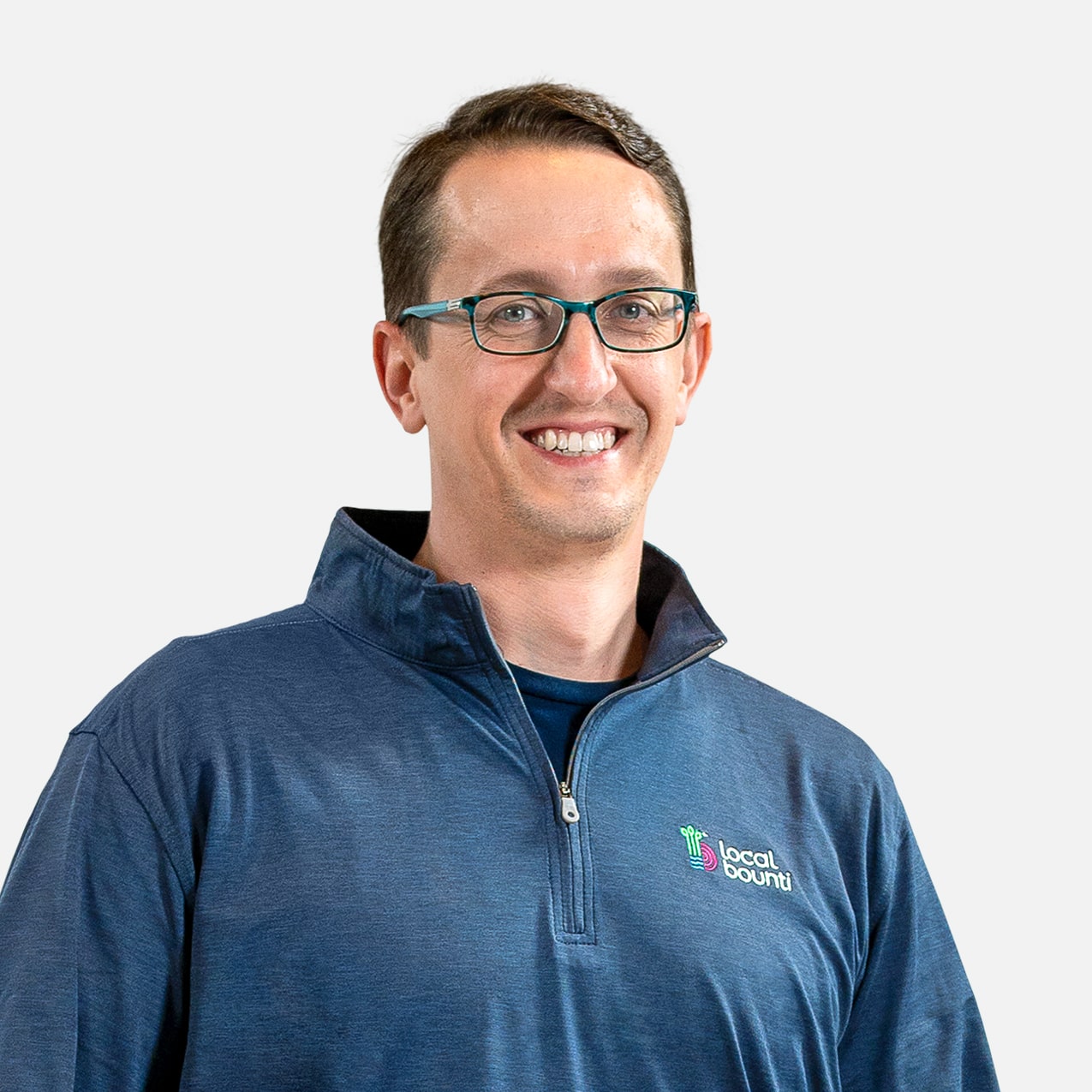- Local Bounti has entered into a definitive merger agreement with Leo Holdings III Corp. (NYSE: LIII)
- Transaction to provide up to $400 million of gross proceeds to the combined company, including $125 million fully committed common stock PIPE at $10.00 per share anchored by existing and new investors, including institutional investors Fidelity Management & Research Company LLC and BNP Paribas Asset Management Ecosystem Restoration Fund, and strategic partners Cargill and Sarath Ratanavadi of Gulf Energy Development Public Company Limited
- Strategic partner Cargill will invest in the future of this leader in controlled environment agriculture to advance the production and delivery of local, fresh and sustainably-grown leafy greens produce for consumers across the U.S.
- Pro forma equity value of the merger is approximately $1.1 billion, at the $10.00 per share PIPE price, assuming no redemptions
- Cargill is separately expecting to provide a $200 million debt facility to accelerate Local Bounti’s expansion plans for this multi-billion-dollar market opportunity
Hamilton, MT – June 18, 2021 – Breakthrough U.S. indoor agriculture company Local Bounti Corporation (Local Bounti) has agreed to go public through a merger with Leo Holdings III Corp. (Leo or Leo Holdings) (NYSE: LIII), a publicly-traded special purpose acquisition company, pursuant to a definitive business combination agreement. The transaction values the combined company at an equity value of $1.1 billion (assuming no redemptions) and upon closing of the transaction, the combined company is expected to remain listed on the New York Stock Exchange under the symbol “LOCL”.
Strategic partners include food and agriculture industry giant Cargill and Sarath Ratanavadi, CEO of Gulf Energy Development Public Company Limited – Thailand’s largest private energy and infrastructure company and one of the world’s leaders in sustainable energy − which are investing in the combined company through a private investment in public equity (PIPE) arrangement. Cargill is also expected to provide $200 million in debt financing to accelerate Local Bounti’s expansion plans. Local Bounti plans to use the capital to build local strategically-located indoor farming facilities across the Western U.S. to provide fresh, superior-tasting, long-lasting and sustainably-grown produce with minimal carbon footprint.
Local Bounti Investment Highlights
- Superior unit economics, with high yield and low-cost operations, enabled by unique hybrid facility configuration that addresses the challenges of conventional greenhouse and vertical farming
- Producing leafy greens today at initial facility with pipeline to grow to eight facilities and the company expects to have over 30 SKUs by the end of 2025, which extends Local Bounti’s penetration, beginning in the largely untapped Western U.S. market
- Superior brand and product that is local and sustainable across a growing number of SKUs, currently in more than 400 retail stores, including Associated Food Stores and URM served retail banners such as Rosauers, Super 1 Foods and Yoke’s
- Strong commitment to Environmental, Social and Governance (ESG) practices and standards, including an executive team member who is Global Reporting Initiative (GRI)-certified to ensure aggressively transparent reporting per GRI and Sustainability Accounting Standards Board
- Best-in-class, established management team of seasoned veterans at scaling early-stage companies, with Fortune 500 and public company experience
“Today’s announcement takes Local Bounti to the next level in enabling local, sustainable production and delivery of fresh, delicious and nutritious produce, including in regions that traditionally don’t have access to local supply, starting in the Western U.S. and expanding globally,” said Local Bounti Co-Founder and Co-CEO Craig Hurlbert. Based on publicly available market research on CEA, Local Bounti believes the current Western U.S. market opportunity is approximately $10.6 billion, and estimates that the total U.S. market for vegetables and herbs will reach up to $30 billion by 2025.
“We look forward to leveraging our proven business model as we accelerate the building of cutting-edge local production facilities that feature our proprietary IP, referred to as Stack & Flow Technology TM, and transforming conventional agriculture practices for the benefit of all our customers, no matter where in the world they’re located,” he said, adding that the company’s growth plans include adding seven new facilities and local leadership in different geographic regions, as well as global expansion of its proprietary technology.
An industry disruptor changing the way food is grown and re-imagining the Farm of the Future™, Local Bounti is a premier controlled environment agriculture (CEA) company redefining ESG standards for indoor agriculture. The company’s unique business model is based on building local facilities, operated by local teams, to deliver the freshest and highest quality produce to local communities while maintaining a limited carbon footprint. Using proprietary technology to grow leafy greens and herbs in a smart, indoor controlled environment – and with a cultivation process that uses 90 percent less water and land than conventional agriculture, free from herbicides or pesticides – Local Bounti delivers high-quality produce that not only has a longer shelf life, but is also superior in taste.
“Local Bounti is set to be a transformational force in the AgTech industry with its demonstrated concept and model in food production and distribution,” said Lyndon Lea, President and CEO of Leo. “Combining Local Bounti’s emphasis on innovation, entrepreneurial spirit, and technology-driven approach with the institutional knowledge of the Leo Holdings team, we are confident in the company’s ability to expand in both reach and consumer offerings.”
Leveraging its innovative proprietary modular and scalable building system, which is designed to easily and efficiently replicate the company’s sustainable indoor farm model, Local Bounti is more than doubling the size of its flagship facility in Hamilton, Montana, and plans to break ground on additional facilities in the Western U.S. before the end of this year.
To learn more about Local Bounti’s unique growing process, diversified product offerings and experienced leadership team, please visit localbounti.com.
Transaction Overview
As a result of the transaction with Leo, Local Bounti will receive up to $400 million in gross proceeds (assuming no redemptions), including $125 million from a fully committed PIPE anchored by existing investors and new investors, including Fidelity Management & Research Company LLC, BNP Paribas Asset Management Ecosystem Restoration Fund and Cargill.
The Boards of Directors of Local Bounti and Leo unanimously approved the transaction, and the transaction will require the approval of the stockholders of both Local Bounti and Leo and is subject to other customary closing conditions. The transaction is expected to close in the second half of 2021.
Additional information about the proposed transaction, including a copy of the merger agreement and investor presentation, will be provided in a Current Report on Form 8-K to be filed by Leo Holdings III with the Securities and Exchange Commission (SEC) and will be available at www.sec.gov. For materials and information, visit the investor section of www.leoholdings.com for Leo, which can be found HERE.
Advisors
Morgan Stanley & Co. LLC, Deutsche Bank Securities Inc. and Nomura Securities International, Inc. served as placement agents on the PIPE and Debevoise & Plimpton LLP served as legal advisor to the placement agents. Kirkland & Ellis LLP served as legal advisor to Leo. Morgan Stanley & Co. LLC and Nomura Greentech served as financial advisors to Local Bounti and Orrick Herrington & Sutcliffe LLP served as legal advisor to Local Bounti.
About Local Bounti
Local Bounti is a premier controlled environment agriculture (CEA) company redefining conversion efficiency and environmental, social and governance (ESG) standards for indoor agriculture. The company operates an advanced indoor growing facility in Hamilton, Montana, within a few hours’ drive of its retail and food service partners. Reaching retail shelves in record time post-harvest, Local Bounti produce is superior in taste and quality compared to traditional field-grown greens. The company’s USDA Harmonized Good Agricultural Practices (GAP Plus+) and non-genetically modified organisms (GMO) produce is sustainably grown using proprietary technology 365 days a year, free of pesticides and herbicides, and using 90 percent less land and water than conventional outdoor farming methods. With a mission to ‘bring our farm to your kitchen in the fewest food miles possible,’ Local Bounti is disrupting the cultivation and delivery of produce. The company is also committed to making meaningful connections and giving back to each of the communities it serves. To find out more, visit localbounti.com or follow the company on LinkedIn for the latest news and developments.
About Leo Holdings III Corp and Leo Holdings
Leo Holdings III Corp is a special purpose acquisition company (SPAC) that seeks to invest in entrepreneurially driven growth companies that seek to disrupt existing industries or business models. The management team has extensive experience owning and operating businesses on a global scale through its private equity vehicle, Lion Capital. Leo Holdings’ management team has collaboratively worked together for over 20 years.
Leo Holdings III Corp is part of a special purpose acquisition company initiative, Leo Holdings, which is focused on investing in disruptive, innovative business models. The initiative seeks businesses positioned to thrive in the evolving digital information age where changing consumer behavior creates the opportunity for outsized returns. In 2020, Leo Holdings Corp entered into a business combination with DMS, a disruptive performance marketing business which delivers high-intent customers while de-risking client advertising spend. Leo Holdings Corp II (LHC) and Leo Holdings III Corp (LIII) are currently listed on the NYSE.
Leo Holdings was formed by the principals of Lion Capital, which is led by Founder and Managing Partner, Lyndon Lea. For more information, visit https://leoholdings.com/.
Cautionary Statement Regarding Forward-Looking Statements
Certain statements included in this Press Release that are not historical facts are forward-looking statements for purposes of the safe harbor provisions under the United States Private Securities Litigation Reform Act of 1995. Forward-looking statements generally are accompanied by words such as “believe,” “may,” “will,” “estimate,” “continue,” “anticipate,” “intend,” “expect,” “should,” “would,” “plan,” “predict,” “potential,” “seem,” “seek,” “future,” “outlook,” and similar expressions that predict or indicate future events or trends or that are not statements of historical matters. These forward-looking statements include, but are not limited to, statements regarding estimates and forecasts of other financial and performance metrics and projections of market opportunity. These statements are based on various assumptions, whether or not identified in this Press Release, and on the current expectations of Local Bounti’s and Leo’s management and are not predictions of actual performance. These forward-looking statements are provided for illustrative purposes only and are not intended to serve as, and must not be relied on by any investor as, a guarantee, an assurance, a prediction or a definitive statement of fact or probability. Actual events and circumstances are difficult or impossible to predict and will differ from assumptions. Many actual events and circumstances are beyond the control of Local Bounti and Leo. These forward-looking statements are subject to a number of risks and uncertainties, including changes in domestic and foreign business, market, financial, political and legal conditions; the inability of the parties to successfully or timely consummate the proposed transaction, including the risk that any required regulatory approvals are not obtained, are delayed or are subject to unanticipated conditions that could adversely affect the combined company or the expected benefits of the proposed transaction or that the approval of the stockholders of Leo or Local Bounti is not obtained; failure to realize the anticipated benefits of the proposed transaction; risks relating to the uncertainty of the projected financial information with respect to Local Bounti; the effects of competition on Local Bounti’s future business; the impact of the COVID-19 pandemic on Local Bounti’s business; the ability of Leo or the combined company to issue equity or equity-linked securities or obtain debt financing in connection with the proposed transaction or in the future, and those factors discussed in Leo’s final prospectus dated February 25, 2021 under the heading “Risk Factors,” and other documents of Leo filed, or to be filed, with the SEC. If any of these risks materialize or our assumptions prove incorrect, actual results could differ materially from the results implied by these forward-looking statements. There may be additional risks that none of Leo or Local Bounti presently know or that Leo or Local Bounti currently believe are immaterial that could also cause actual results to differ from those contained in the forward-looking statements. In addition, forward-looking statements reflect Leo’s and Local Bounti’s expectations, plans or forecasts of future events and views as of the date of this Press Release. Leo and Local Bounti anticipate that subsequent events and developments will cause Leo’s and Local Bounti’s assessments to change. However, while Leo and Local Bounti may elect to update these forward-looking statements at some point in the future, Leo and Local Bounti specifically disclaim any obligation to do so. These forward-looking statements should not be relied upon as representing Leo’s and Local Bounti’s assessments as of any date subsequent to the date of this Press Release. Accordingly, undue reliance should not be placed upon the forward-looking statements. Certain market data information in this Press Release is based on the estimates of Local Bounti and Leo management. Local Bounti and Leo obtained the industry, market and competitive position data used throughout this Press Release from internal estimates and research as well as from industry publications and research, surveys and studies conducted by third parties. Local Bounti and Leo believe their estimates to be accurate as of the date of this Press Release. However, this information may prove to be inaccurate because of the method by which Local Bounti or Leo obtained some of the data for its estimates or because this information cannot always be verified due to the limits on the availability and reliability of raw data, the voluntary nature of the data gathering process.
Important Information
In connection with the proposed transaction, Leo intends to file a registration statement on Form S-4, including a proxy statement/prospectus (the “Registration Statement”), with the SEC, which will include a preliminary proxy statement to be distributed to holders of Leo’s ordinary shares in connection with Leo’s solicitation of proxies for the vote by Leo’s shareholders with respect to the proposed transaction and other matters as will be described in the Registration Statement, and a prospectus relating to, among other things, the offer of the securities to be issued to Local Bounti’s stockholders in connection with the proposed transaction. After the Registration Statement has been declared effective, Leo will mail a definitive proxy statement/prospectus, when available, to its shareholders. Investors and security holders and other interested parties are urged to read the proxy statement/prospectus, and any amendments thereto and any other documents filed with the SEC when they become available, carefully and in their entirety because they contain important information about Leo, Local Bounti and the proposed transaction. Investors and security holders may obtain free copies of the preliminary proxy statement/prospectus and definitive proxy statement/prospectus (when available) and other documents filed with the SEC by Leo through the website maintained by the SEC at http://www.sec.gov. These documents (when they are available) can also be obtained free of charge from Leo upon written request to Leo by emailing [email protected] or by directing a request to Leo’s secretary at c/o Leo Holdings III Corp, 21 Grosvenor Pl, London SW1X 7HF, United Kingdom.
Participants in the Solicitation
Leo and Local Bounti and their respective directors and certain of their respective executive officers and other members of management and employees may be considered participants in the solicitation of proxies with respect to the proposed transaction. Information about the directors and executive officers of Leo in its final prospectus dated February 25, 2021. Additional information regarding the participants in the proxy solicitation and a description of their direct interests, by security holdings or otherwise, will be set forth in the Registration Statement and other relevant materials to be filed with the SEC regarding the proposed transaction. Stockholders, potential investors and other interested persons should read the Registration Statement carefully before making any voting or investment decisions. These documents, when available, can be obtained free of charge from the sources indicated above.
No Offer or Solicitation
This communication is for informational purposes only and is not intended to and shall not constitute an offer to sell or the solicitation of an offer to sell or the solicitation of an offer to buy or subscribe for any securities or a solicitation of any vote of approval, nor shall there be any sale, issuance or transfer of securities in any jurisdiction in which such offer, solicitation or sale would be unlawful prior to registration or qualification under the securities laws of any such jurisdiction. No offer of securities shall be made except by means of a prospectus meeting the requirements of Section 10 of the Securities Act of 1933, as amended, and otherwise in accordance with applicable law.
Contacts:
Kathleen Valiasek, Chief Financial Officer
Local Bounti
[email protected]
Chloe Gatta
Leo Holdings
[email protected]





